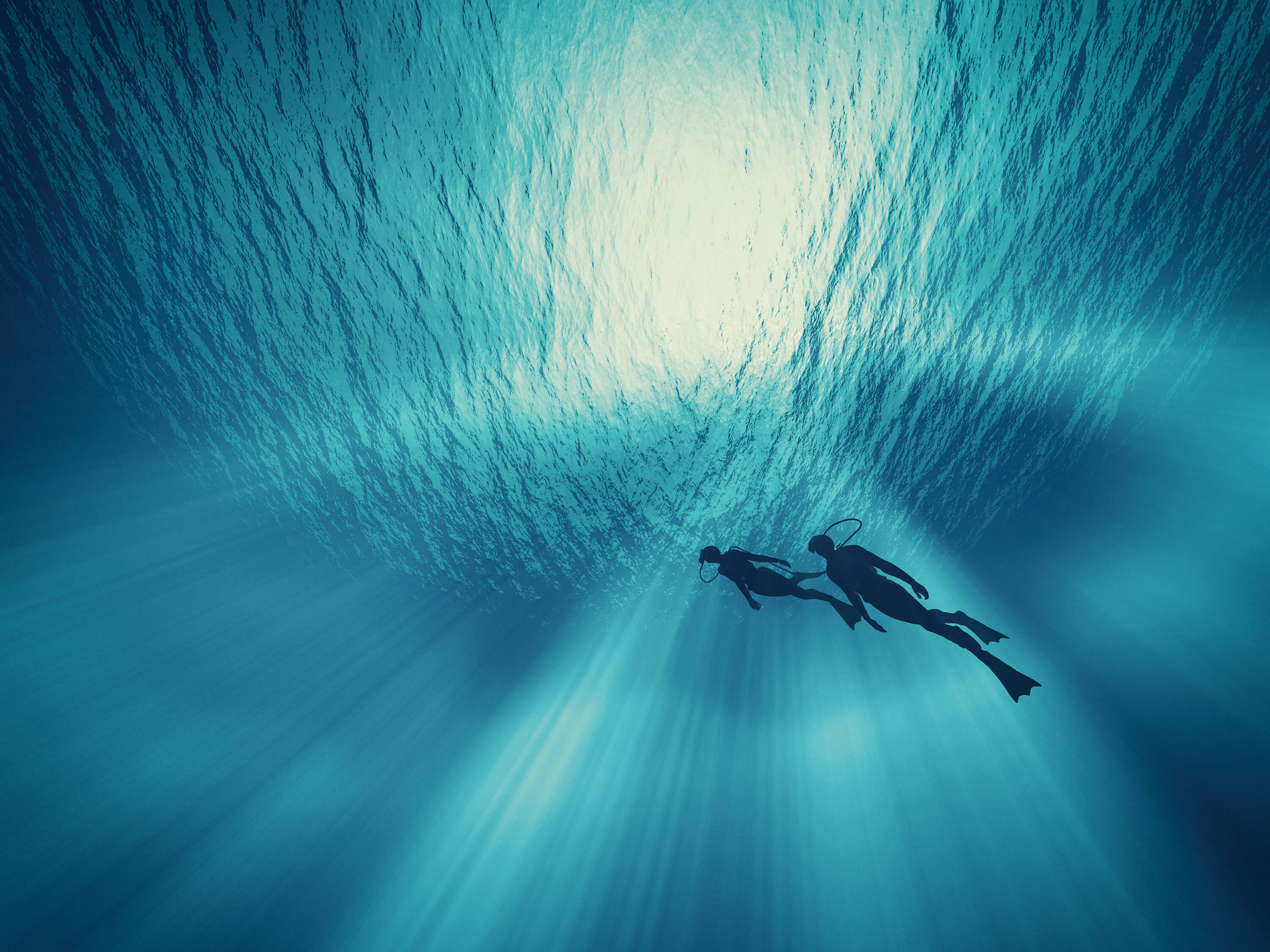
Take A Dive
5 unexpected reasons to try scuba diving this summer.
Jersey Shore native Sean Cervone ’13 has always loved two things: animals and the sea.
So, when he had to get scuba certified for a position he attained through an internship class with Associate Professor Lisa Dinella, he fell in love with the sport that connected two of his passions. Now a certified assistant instructor through the Professional Association of Diving Instructors (PADI), Cervone teaches courses through Divers Two in Avon- by-the-Sea, New Jersey, and continues to travel and dive on expeditions focused on conservation.
You Can Experience Weightlessness
This month, Cervone traveled to Trinidad to experience “dri diving”—when the ocean current transports the diver through the water without them having to exert any energy. “You’re just weightless and flying through the ocean—it’s an amazing feeling.”
It’s Therapeutic
Not only can weightlessness ease physical pain, but the calmness beneath the water can help to relieve emotional stress, says Cervone, who cofounded Warhorse Scuba, a nonprofit that serves those with PTSD, traumatic brain injury, C-spine, and other disabilities.
“Your physical pain is 100 percent capable of being relieved during scuba diving … and there’s the group aspect because when you’re diving, it’s a team effort with everybody looking out for one another,” says Cervone. “Plus, when you’re diving, no one is talking to you, so you have time with your own thoughts.”
It’s Eye-Opening
You’ll connect with rare and endangered species and observe sea life and landscapes that will amaze you. “We saw whales in Long Branch, diving last year—I mean, that’s pretty awesome,” he says. “You don’t think of whales being right here but they are.” Scuba diving can also be eye-opening for landlubbers who are unaware of how vast plastic pollution is. “There’s a floating patch of garbage in the Pacific, between California and Hawaii—it’s incredible how much garbage there is, and it’s plastic that’s really the problem.”
You Can Make A Difference
Because it’s such an eye-opening experience, scuba divers o en become heavily involved in conservation and cleanup efforts across the globe, says Cervone.
Through PADI’s Project Aware, for example, many divers participate in Dive Against Debris events, which are focused on collecting and reporting on how much trash is floating in water ecosystems.
In 2011, 50,000 divers in 114 countries collected over 1 million pieces of trash. Cervone says that every summer, he and his colleagues at Divers Two participate with other local divers to clean up the Belmar Bay.
You’ll Make New Friends and Explore New Worlds
Over the past several years, Cervone has traveled to nearly 30 countries to connect with other scuba divers and take part in various types of conservation efforts. The sport connects you to a community and takes you to places that may have otherwise been off your radar, he says. “Once you’re under water, you’re in a place that a lot of people don’t get to see.”